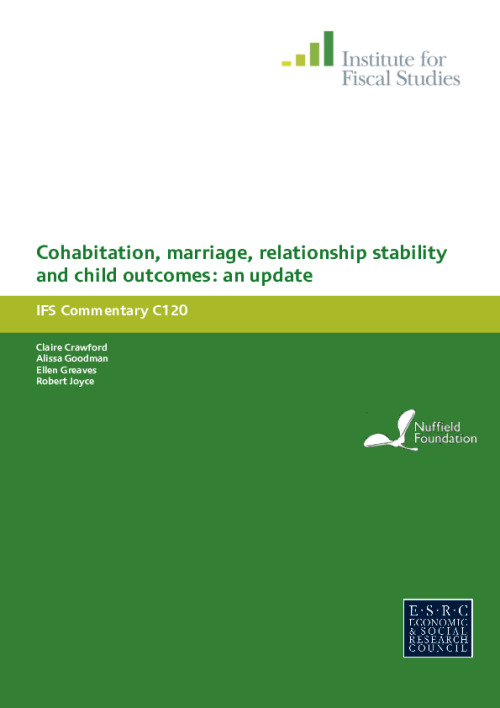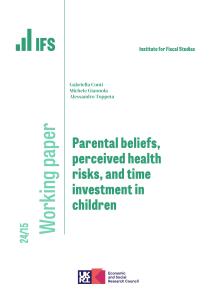Children born to married parents achieve better cognitive and social outcomes, on average, than children born into other family forms, including cohabiting unions. This report asks why this is so: is it the parents' marital status per se that results in better outcomes for their children, or is it because married and cohabiting couples are different in some other ways, such as their level of education, which also matter for child development? Differences in outcomes between children whose parents are married and those who cohabit may simply reflect these differences in other characteristics rather than be caused by marriage.
In this work we have tried to disentangle these effects using two datasets: the Millennium Cohort Study (MCS), a sample of children born in the UK in the early 2000s; and the British Cohort Study (BCS), a census of individuals born in a particular week in 1970, whose children were surveyed in 2004. The MCS is a nationally representative sample, but only includes information from after the birth of the study child, which may have been affected by parents' marriage decisions. The children of the BCS, on the other hand, are not a nationally representative sample, but do provide very rich information about one of the parents from their own childhood, long before marriage decisions could have been taken.












